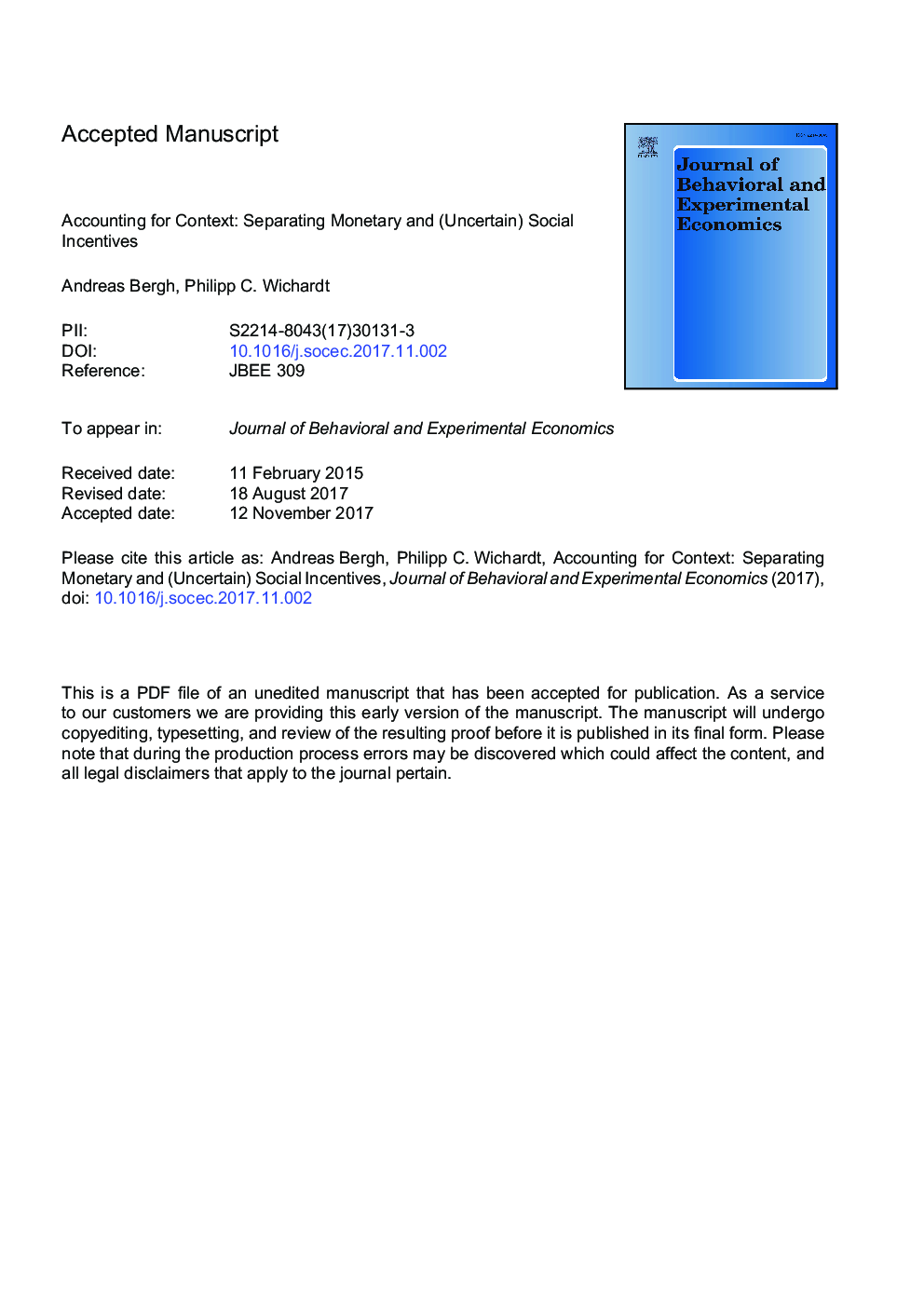| Article ID | Journal | Published Year | Pages | File Type |
|---|---|---|---|---|
| 7242015 | Journal of Behavioral and Experimental Economics | 2018 | 21 Pages |
Abstract
This paper proposes a simple framework to model social preferences in a way that explicitly separates economic incentives from social (context) effects and allows for uncertainty also about the latter. Moreover, it allows non-economic cost associated with the deviation from some norm to be more discriminatory than just “right” or “wrong.” We refer to existing evidence on dictator game giving to demonstrate how intermediate behaviours (giving some) as well as payments to change the context (e.g. exiting the game) can be accounted for. Furthermore, the framework is used to exemplify both theoretically and empirically how contextual variables such as social norms can worsen a social dilemma or possibly make it disappear. The empirical results of a classroom experiment suggest that women are more responsive to such contextual effects.
Related Topics
Social Sciences and Humanities
Economics, Econometrics and Finance
Economics and Econometrics
Authors
Andreas Bergh, Philipp C. Wichardt,
